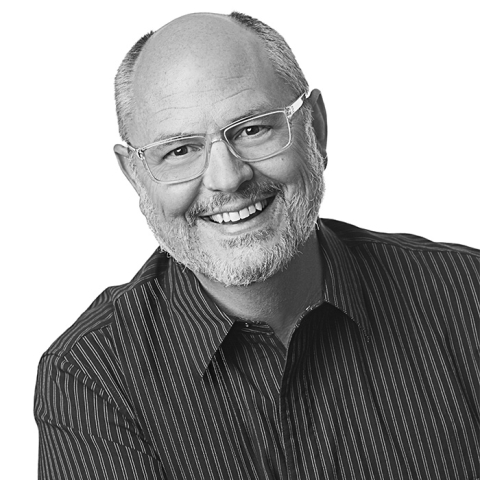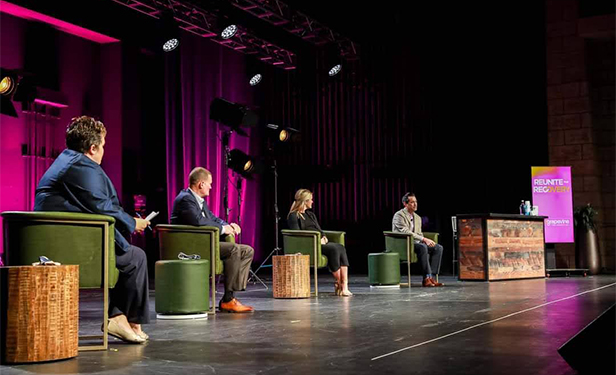8 Important Questions With Freeman CEO Bob Priest-Heck

Bob Priest-Heck, CEO of Freeman, knows — or should we say “nose?” — what triggers his mind back to a memorable business trip to China. All it takes is the simple waft of a traditional custard dessert to send him away. “If you can smell something, it will bring back a memory,” he explained. That natural human reaction is why there will always be a place for in-person meetings. Virtual experiences, while important, aren’t able to pass the smell test — at least not yet. (It’s worth noting that it took Priest-Heck years to find those same pastries outside of China to recreate that experience.)
A recent study conducted by Freeman backs up the belief. By fall 2021, 78% of attendees expect to attend an in-person event, and the number jumps to 94% by the winter. Virtual content is gaining popularity for education — 44% say that is the driver to attend online — and more than 50% prefer to participate in exhibits and network face-to-face.
The results are not terribly surprising, but are encouraging, said Priest-Heck. Like many of us, he senses change is afoot. Vaccine distribution is up and reticence to travel is down. But, the CEO said, attendees will quickly see we are in a new world of events. Even companies that were preparing for the digitization of events were forced to adapt far faster and at a greater scale than they could imagine. Streamline was necessary for survival, and it was not without cost.
Freeman, which in its more than 90 years of existence has grown into the world’s largest live event and brand experience company, has gone from 6,000 to 2,000 full-time and part-time global employees. Another 1,400 remained furloughed, as Priest-Heck has made a point of maintaining a healthy relationship with his staff and hopes to bring many of those displaced workers back into the fold.
“This is what I call the bridge period,” he said of the entire industry. “We’re not doing what we will be doing in the future, and we won’t be doing what we’re doing right now.”
From technology to tradeshows and the gig economy, Priest-Heck shared his thoughts on where meetings and events are headed.
Are you surprised by the Freeman study results showing a readiness to return to face-to-face?
I'm not surprised at all of the importance of in-person meetings. I've lived through the disruption of publishing and I've lived through the disruption of music. I know what that disruption looks like and this is not exactly that. We already knew that strategy and data and personalization were important. It’s not like there was some wholesale shift that we weren’t aware of. What changed was the scale, in which we had to do it overnight.
For all of the pandemic’s anguish, is there an upside to the industry’s upheaval?
It really is an opportunistic time. People can’t return to yesterday. There’s a lot of opportunity for marketers and for event organizers to think about how we leverage live events in the future. It’s kind of exciting.
What will be a telltale sign that the events industry has adapted and learned from the past year?
I grew up producing events in tech many, many years ago. Our CEO was always talking about the quality of the audience is so much more important than the quantity of the audience. In the new world order, we’re going to ask, “How good was the quality of my audience? How good was the experience? How many qualified leads were there?” We’re going to shift to quality over quantity equations and I think people will have to set expectations around that because you will have to explain that more is not better. Better is better.
What does hybrid mean to you?
It’s a blend of physical and digital experiences that are connected at a strategic level but they’re not physically connected. You are going to have to devise your strategy knowing how you are going to use all those mediums but not assuming you have to use them in the same way. I have talked to a lot of corporate planners who I think are starting to get it.
 How should education be provided?
How should education be provided?
We’re going to have to lean more into experience design. There is still value in in-person learning and education, but that’s not the only way you learn. Freeman has been working on the assumption you have a second screen in front of you all the time, but the question is what do we do with that second screen? How do we create a more compelling experience when you are in person? When you’re not in-person, I think it’s about chunking out the content so it’s bite-sized. When we think about audience amplification and expansion and extending the shelf-life on content, this is a massive opportunity. Think about your traditional association – maybe 10% of the members come to the annual meeting.
Where do you see associations going forward?
Associations are harder to meet in-person by nature than a corporate or for-profit company. But I think COVID might actually turn out to be beneficial for associations in the long run. I understand some may have cash issues and there is risk of survival, but I think they have proven their relevance. They’ve been forced to talk to their members and be more relevant to younger generations. Content is critical in the new world order. I think they can use this time to reinvent, and if they are wise, they will.
How is Freeman prepping for the cramming of all these events into the second half of the year?
Very carefully. We’re putting an insane amount of effort into the ramp-up. People are going to have to appreciate things are not going to be the same as they left them. The whole ecosystem has been impacted. When we bring people back, we have new procedures and we’ve streamlined the operation. We took this time to improve everything like our cost structure, our infrastructure, our business procedures — all in the mindset of helping customers come back. It’s tricky because you don’t want to pull the string too quickly and bring people back before we are ready.
Do you see the events industry turning more to freelance workers or hiring back full-time staff?
There’s a gig economy emerging and there a lot of people who want that flexibility. I’ve also seen models where people are trying to take the risk off their books and only employ workers in a contingent way. That’s a bridge too far because that’s not what our customers want. They want to have consistent engagement. We’ve got to be careful and make sure that people are treated fairly and no one is taken advantage of. For us, I think it’s going to be very blended, or else I would not have maintained furloughed status for so many people.
Don’t miss any event-related news: Sign up for our weekly e-newsletter HERE and engage with us on Twitter, Facebook, LinkedIn and Instagram!


Add new comment